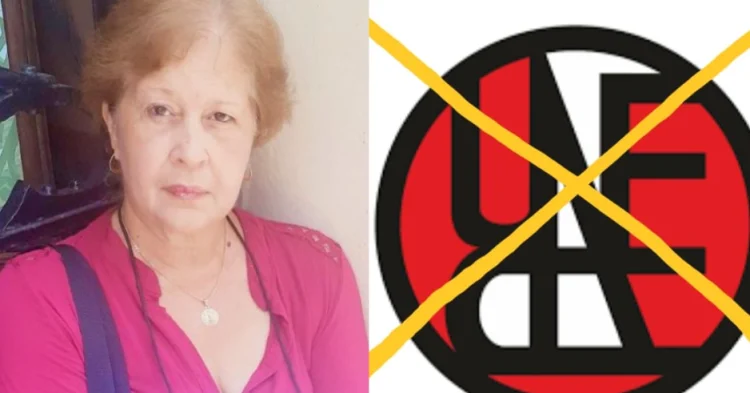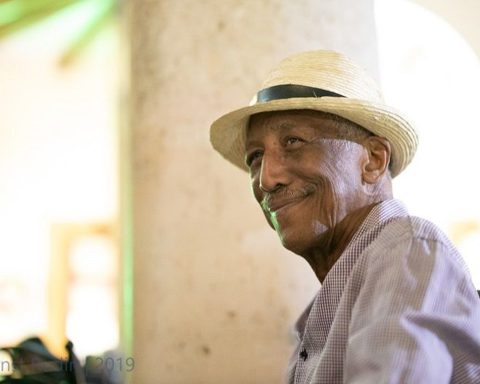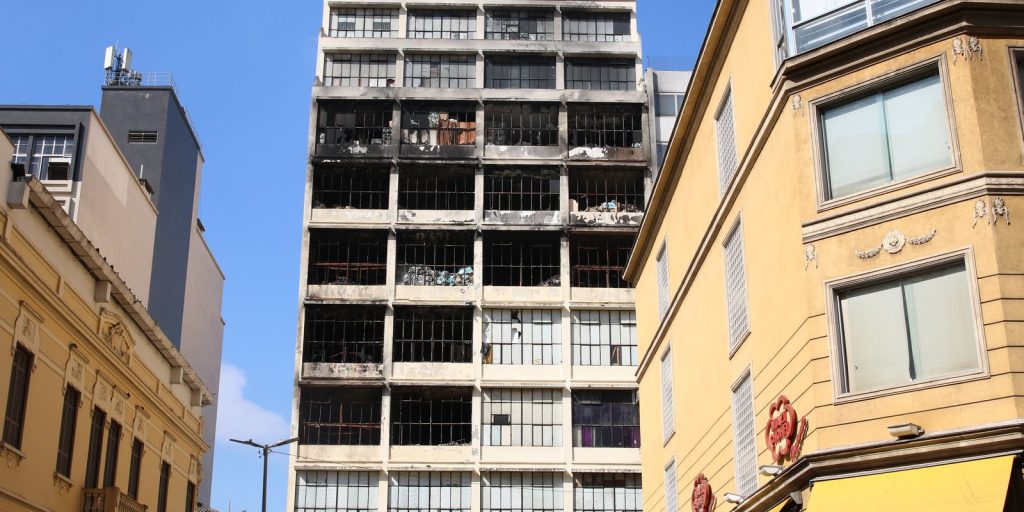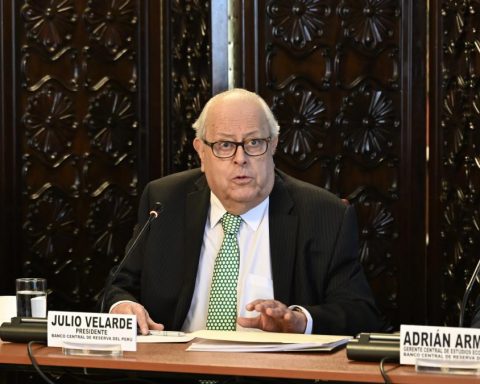MADRID, Spain.- The Cuban historian and essayist Alina Bárbara López Hernández was expelled of the Union of Writers and Artists of Cuba (UNEAC) after being accused of carrying out “activities against the revolution.” The decision, which cannot be appealed, was communicated to her during a meeting on September 12 in Matanzas, where the Provincial Committee of UNEAC notified her of her definitive separation from the organization. This fact adds to the series of repressive actions of the regime against dissident voices.
In a post on her Facebook profile, the historian described the details of the process, stressing that officials refused to give her a written copy of the document containing the accusations, under the pretext that it was a “verbal communication.”
Lopez Hernandez He said that the meeting was attended by the president of the Committee, José Manuel Espino, and four officials who lead the artistic associations of the organization. During the summons, he was informed of the “causes” for his expulsion, including the publication of internal information on social networks and an alleged offense to Julio César Pérez Verdecia, vice president of the Writers Association. According to the academic, Pérez Verdecia has been linked to “cyber-combat” campaigns directed by State Security. The latter commented on the Atenea Matancera page, a platform associated with State Security, that López “had lost her shame and was violating the peace in the city.” López Hernández responded by saying that far from offending, her defense had been ethical, pointing out that it was she who felt aggrieved.
The alleged reasons for the expulsion include carrying out activities “against the revolution,” publishing criticism of the Cuban leadership in media such as Young Cuba and CubaxCuba, and her support for the protesters of July 11, 2021 (11J). She was also accused of “committing serious crimes” contemplated in the Penal Code, specifically disobedience and attack.
López Hernández defended her right to freedom of expression and peaceful protest, rights recognized in the Cuban Constitution. “I asked them to clarify what activities ‘against the revolution’ I have carried out, since I am not a member of any opposition organization or party, I have never appealed to violence and I have always advocated for national dialogue,” she explained. She also stressed that her work as an essayist and social scientist has focused on studying the political history of the Cuban Communist Party, including its errors and the consequences of its economic management.
Regarding the accusations of serious crimes, López described the charges of disobedience and attempted murder as “an aberration.” She clarified that, although she was fined, she has no criminal record. “Neither State Security nor the judges ever considered my conviction for disobedience to be a ‘serious crime.’ I received a fine, not a criminal sentence,” she said, and criticized UNEAC for having mentioned a case that was still in the investigation phase, thus violating the principle of presumption of innocence.
In his post, López also questioned UNEAC’s role as a defender of the interests of artists and intellectuals, claiming that the organization has become an apparatus subordinate to the Communist Party and its control structures. “What is the point of an intellectual organization that has to obey the unalterable statutes of a political organization to which not all of its members belong?” he questioned.
The historian concluded by reaffirming her commitment to freedom of expression and her determination to continue working as an intellectual and Cuban citizen, despite her expulsion. “I will continue to be an intellectual, a citizen and a dignified Cuban, even outside of that organization that has long been disgraced. You will not be able to avoid that, even if it bothers you,” she said.
Supportive reactions
Since the expulsion became public, reactions of solidarity and support for Alina Bárbara among Cuban intellectuals and activists have not been long in coming.
Among the first reactions is that of Diane Lyxco-director of CubaxCuba. Laboratorio de Pensamiento Cívico, who expressed her outrage on Facebook, calling the expulsion “shameful.” “This woman has the decency, honesty and courage to write about everything that is wrong in Cuba,” she said.
The activist Lara Croft She also expressed her support by stating: “Alina Bárbara López Hernández belongs to Cuba, not to obsolete and decadent organizations.”
For its part the Cultural Rights Observatory (ODC) The ODC denounced López Hernández’s exclusion through a statement on the social network X (formerly Twitter), describing the act as a serious violation of cultural rights. “She joins the honourable list of those censored by UNEAC, an organisation that operates as the repressive arm of State Security against Cuban intellectuals,” stated the ODC. In addition, it highlighted the historian’s commitment to Cuba, describing her work as a “permanent exercise in intellectual honesty.”
Alina Bárbara’s activism under harassment from the regime
Alina Bárbara has been subjected to constant harassment and mistreatment by the Cuban regime authorities, including several arbitrary arrests, some of them involving the use of violence. This harassment began in October 2022 and intensified in 2023, when she was convicted of “disobedience” after refusing to appear at extrajudicial summons imposed by State Security, resulting in her house arrest.
Every 18th of the month, Alina Bárbara organizes peaceful protests in Matanzas’ Parque de la Libertad with the aim of making visible the repression that is taking place in the country. Among their demands are the convening of a democratically elected National Constituent Assembly, attention to the crisis affecting the most vulnerable sectors, and freedom for political prisoners.
In a recent interview with CubaNetthe activist explained that these protests began in March 2023. “Taking advantage of the commemoration of the centenary of the Protest of the 13, which occurred on March 18, 1923, it seemed like an appropriate time, given the state of absolute crisis in Cuba — not only economic, but also political, social, symbolic and cultural — to pay tribute and give a nod to history.” “From that date on,” she noted, “I decided to organize, every 18th of the month, a symbolic act of peaceful protest.”
















